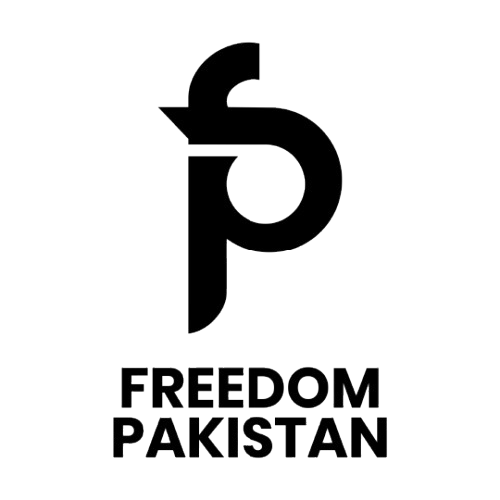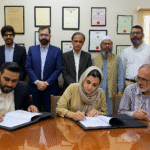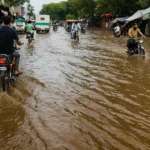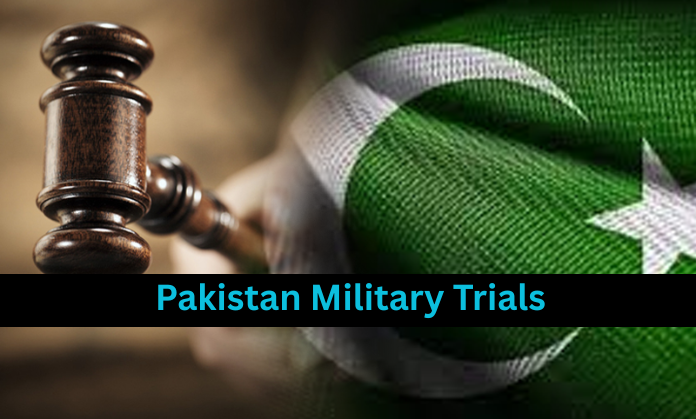25 people associated with the PTI have been handed down sentences by a Pakistan Military Court.
Many nations and human rights groups are concerned after Pakistan’s military court announced mass sentences for 25 people tied to the May 9 riots. Critics say the military courts hearings involving PTI backers are flawed in terms of being clear and fair.
International Condemnation;
All three, the USA, EU and UK, have expressed concern about trying civilians in Pakistan Military courts, pointing out that it breaks rules from the ICCPR which Pakistan is part of.
May 9 Riots: Trouble in the Political Sphere Gets Physical
The riots on May 9 came after police arrested former Prime Minister Khan at the Islamabad High Court. Before long, people were protesting nationwide and troops, infrastructure and police came under attack. Thousands of PTI supporters were arrested after the state clamped down on the protests.
But, rather than let these civilians be tried in the regular courts, the government decided many had to be brought to Pakistan Military tribunals and this has come under heavy attack from those who support human rights and politics.
The U.S., EU and UK have called on the Pakistan military to guarantee fair treatment in all trials.
The U.S. State Department said that the Pakistan Military system for trials does not live up to international standards. The U.S. has asked Pakistani authorities to make sure that everyone remains entitled to a fair trial, as granted by the constitution, the statement stated.
The EU repeated this, making sure Pakistan knew it must honor the terms of the GSP Plus (GSP+) trade arrangement which grants it access to the EU market if all 27 core international conventions, including those on human rights, are followed.
If more violations happen, a review of Pakistan’s GSP+ status could affect its important textile and export business, according to an official from the EU.
Is the Military’s Judiciary Breaking Rules Set by the Constitution?
First set up for terrorism offenses, Pakistan’s military courts have often had concerns about going beyond their assigned limits. Human rights groups say that holding civilian trials in these courts does not comply with Article 14 of the ICCPR which requires a fair and public trial by independent judges. HRCP said the decision, by striking down these laws, weakens democracy in Pakistan and leads to lawless policies. Referring cases that involve civilians to military courts can signal a loss of the independence of the normal judiciary, said the HRCP.
There’s Political Backlash: Parties on Both Sides Protest
Akram said the Pakistan Military trials clearly conflict with Pakistan’s legal obligations. At a news conference in Peshawar, he complained that the government is using the army to marginalise its political competition. Akram said: “The system of justice in Pakistan has been abused by the government to exact revenge and they intend to break international agreements to eradicate their political opponents.”
The duty benefit for Sri Lanka under GSP Plus could soon be removed.
The EU’s recent move has major economic consequences for Pakistan. The ongoing problems making money in Pakistan have made the European market’s preferential trade access a lifeline for the textile and garment businesses. If this trade status is withdrawn, the economy could suffer a considerable downturn in its exports, employment and reserves for foreign exchange. Since inflation is already high and the rupee is being squeezed, these new economic risks just make the country’s already fragile economy worse.
Investigation: It Is a Dangerous Drift for Civil Rights
Many people in Pakistan consider the attacks on military properties on May 9 to have been planned and strong, but using civilian courts, as being done now, could start a dangerous trend. Experts on such issues hold that faster procedures at military courts compromise fairness and clear justice.Engaging in these methods is expected to weaken public confidence in the courts, increase political division and worsen the present crisis in democracy. Other countries may become more distant from Pakistan and pressure might rise from international groups devoted to human rights. The nation’s reputation as a democracy is being closely examined by outsiders.
The Road ahead mirrors our goals to protect Rule of Law and Human Rights
It is necessary for Pakistan Military to transfer all civilian trials over to common courts based on the constitution. To make the courts more independent and transparent, judicial reforms need to happen right now.
Besides, a full and clear investigation of the May 9 events should be started and justice should be served to all participants according to the law, not politics.
Restoring Pakistan’s good reputation and peace at home depends on open talks with other countries and following human rights conventions again.
PM Shehbaz Attends Meeting at ISI to Be Briefed About Country’s Readiness against India












